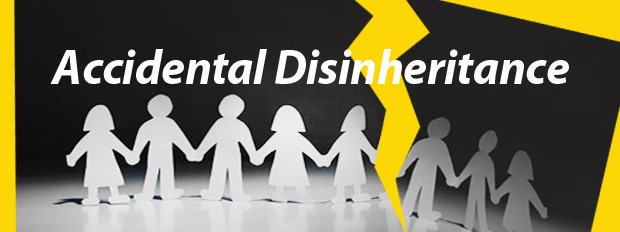Accidental Disinheritance: Update Wills, Estate Plans Annually
Gift Tax, Trusts & Estate Planning Attorney
by Kira S. Masteller
818.907.3244
So you have an estate plan? Good for you. You funded it? Even better. But have you updated it and your will in the last year? If you haven’t, your loved ones or favorite charities may be in for an unpleasant surprise. Your ex-spouses, step-children, ex-partners or someone else you hadn’t considered may find themselves receiving a windfall.

Don’t subject your loved ones to accidental disinheritance. This commonly happens when clients fail to update their beneficiary list, particularly upon:
- Divorce
- Remarriage
- Death of a Beneficiary
- Birth of a Child
Divorce is one of the more common events to cause rancor (and potential litigation) among surviving family members when a decedent hasn’t updated designations.
In Hillman v. Maretta for example, the Supreme Court of the United States decided Judy Maretta, the ex-wife of Warren Hillman, was entitled to Hillman’s nearly $125K life insurance policy proceeds. Hillman and Maretta were divorced for a decade before Hillman passed – but he never updated his policy beneficiary designee. His widow and ex-spouse battled in court for five years before the Supreme Court ultimately decided the case.
There’s more to this story however, as Hillman lived in Virginia which has laws to protect subsequent spouses (California Probate Code §6122, also protects subsequent spouses). Under state law, Hillman’s widow/current spouse would have received the proceeds.
But since Hillman was a federal employee, his life insurance policy was governed by the Employees’ Group Life Insurance Act of 1954. Under this Act, the beneficiary designation prevailed over Virginia regulations.
Similarly, consider Egelhoff v. Egelhoff. In this case, David Egelhoff named his wife Donna Rae as beneficiary of his pension plan and life insurance policy – both of which were governed by the Employment Retirement Income Security Act of 1974 (ERISA).
Shortly after their divorce, David died in a car accident. David’s children challenged Donna Rae’s status as beneficiary, citing Washington state law which would have revoked benefits for her upon divorce. The trial court found for the children, but an appellate decision found for the ex-spouse, and was upheld by the Supreme Court.
Laws in many states will revoke an ex-spouse’s claims. However, we see that federal laws will often trump state regulations. Even when no federal legislation applies, it just doesn’t make sense to make your preferred beneficiaries fight for their inheritances in court, should some question arise as to your intentions. Why put them through the expense and aggravation?
Beneficiary Designation Gone Bad
Here’s one more scenario that isn’t clouded by laws governing federal employees – in other words, this could happen to anyone:
We are currently dealing with a situation in which a wife was insured under two separate life insurance policies, and then passed away. Her husband was the designated beneficiary for both policies. Unfortunately, he became very ill just before his wife passed.
When she did pass, the husband was unable to manage his financial affairs, and never collected the life insurance proceeds due to him when his spouse died.
Death benefits from both life insurance policies are now going through probate (of the husband’s estate) before being distributed to the surviving children. If the parents’ living trust had been named as the beneficiary of the policies, the Trustee could have collected the life insurance benefits either when the husband was alive or after his death, without a Probate proceeding.
Getting sound advice regarding how to complete beneficiary designations is AS IMPORTANT as completing them.

To be clear regarding your estate planning objectives, ensure these assets’ designations are all up to date:
- Bank & Brokerage Accounts – Trust
- Life Insurance Policies – Designate Trust or Tax Planning Life Insurance Trust
- Trusts – check who you named as beneficiaries and who you appointed as trustees each year
- Retirement Accounts – Beneficiary designation form
- Company Benefit Plans – Beneficiary designation form
- 529 College Accounts – Beneficiary designation form
- Transfer on Death Accounts – Beneficiary designation form
Kira S. Masteller is a Shareholder in our Trusts & Estate Planning Practice Group.
